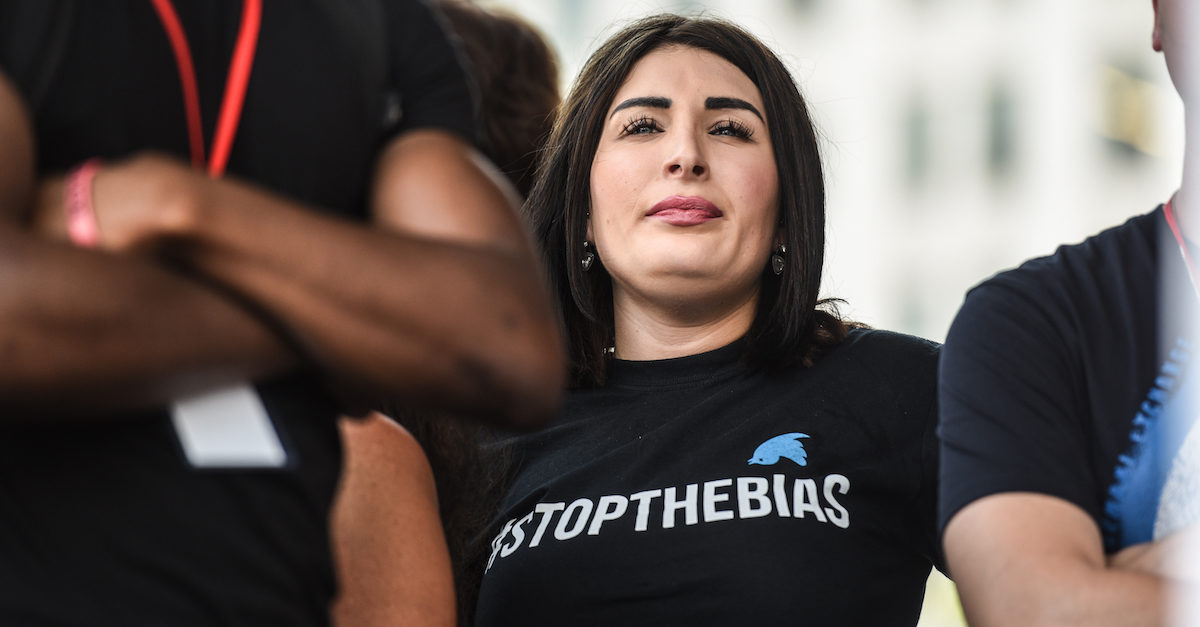
Conservative attorney Larry Klayman asked the U.S. Supreme Court on Tuesday to take up a far-right activist Laura Loomer’s “shadow banning” lawsuit against a slew of social media companies. The case was previously dismissed at both the district and circuit court levels, chiefly because social media platforms cannot violate the First Amendment because they are not governmental actors.
The case dates back to 2018, when Loomer—a failed congressional candidate—and the Klayman-led right-wing legal nonprofit group Freedom Watch sued Google, Facebook, Twitter and Apple over allegations that the platforms had violated the First Amendment, the Sherman Antitrust Act and the District of Columbia Human Rights Act.
The lawsuits alleged that those platforms worked together to suppress conservative points of view—a position petitioners have doubled-down on once again, almost verbatim.
“This Amended Complaint is centered upon Respondents’ ‘conspiracy to intentionally and willfully suppress politically conservative content,’and the resulting severe damages that this conspiracy has had on Freedom Watch and Ms. Loomer, both of whom are prominent conservative organizations/figures who rely on social media platforms to ‘to inform the public about [their] conservative advocacy and to raise the funds through donations to further its public advocacy and mission,’” the petition stated. “The aim of this conspiracy to use anti-competitive means to suppress politically conservative content was to ‘take down President Donald Trump and his administration with the intent and purpose to have installed leftist government in the nation’s capital and the 50 states.’”
Despite the previous courts’ decisions, the petition again cited a Supreme Court case from 2017 to argue that the “denial to access to social media platforms can for the basis for constitutional violations.” In Packingham v. North Carolina, the high court ruled that a North Carolina law banning registered sex offenders from accessing social networking sites was unconstitutional. The petition fails to address the fact that the Court’s ruling was focused on the constitutionality of state, or governmental, action—not the conduct of a private company.
In other words, the First Amendment limits the government from abridging citizens’ speech. Because tech platforms are not the government, the First Amendment does not apply to them and they cannot violate a user’s free speech rights. There are various shades and degrees of when private entities are tangentially impacted by the First Amendment’s free speech guarantee, but none of that jurisprudence has anything to do with tech platforms blocking certain users or demonetizing certain types of accounts.
President Trump has been hell-bent on repealing Section 230 because social media companies are immune from liability for content moderation decisions—for instance, often flagging his tweets [emphasis ours]:
Civil liability
No provider or user of an interactive computer service shall be held liable on account of—
(A) any action voluntarily taken in good faith to restrict access to or availability of material that the provider or user considers to be obscene, lewd, lascivious, filthy, excessively violent, harassing, or otherwise objectionable, whether or not such material is constitutionally protected; or
(B) any action taken to enable or make available to information content providers or others the technical means to restrict access to material described in paragraph (1).
Law&Crime reached out to Klayman for comment.
Read the full petition below:
LOOMER Google Cert Petition LK Final by Law&Crime on Scribd
[image via Stephanie Keith/Getty Images]